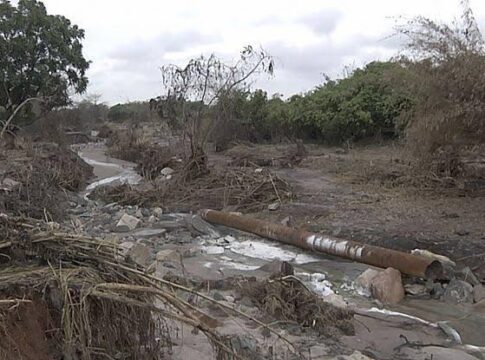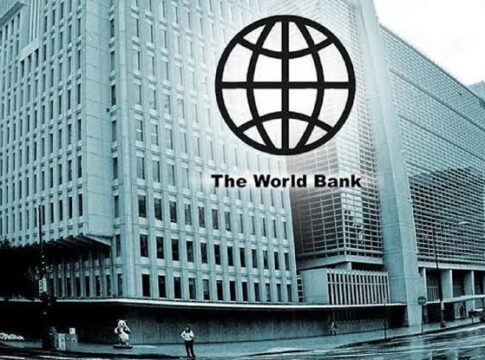A devastating acid spill from a Chinese-owned copper mine has contaminated Zambia’s Kafue River, threatening the livelihoods of millions. The spill, caused by a collapsed tailings dam on 18 February 2025, released 50 million litres of acidic waste and heavy metals into the waterway. Experts warn of long-term environmental and economic consequences, with pollution detected over 100 kilometres downstream.
A River Poisoned
The Kafue River, Zambia’s lifeline for farming, fishing, and drinking water, now faces an ecological disaster. Piles of dead fish have washed up on riverbanks, while farmers report crop destruction from contaminated water.
“It is a catastrophe,” said Chilekwa Mumba, an environmental activist. “Millions depend on this river, and now their future is uncertain.”
Locals fear the worst as the government urges residents to stop consuming fish from the river. Farmer Juliet Bulaya described watching in horror as her fish pond was wiped out. “All my investment is gone. I just stood there in agony,” she said.
Economic and Environmental Fallout
The spill has already impacted thousands of farmers growing maize and groundnuts near the river. Zambia’s Fisheries and Livestock Ministry issued a warning on 23 February 2025, urging people to avoid fish from Kafue and nearby streams.
READ MORE: Zulum Approves N1 Billion Grant for Over 9,400 Small Businesses in Borno
The tailings dam was repaired a day after the breach, but the damage remains. The Engineering Institution of Zambia is investigating the long-term impact, while communities demand accountability from the mine’s owners, Sino Metals.
Environmentalists say cleanup efforts could take years, with risks of soil contamination and heavy metals entering the food chain. “The river was full of life before this,” said resident Sean Cornileus. “Now, everything is dead.”
What Happens Next?
Authorities have yet to announce penalties for Sino Metals. With Zambia’s copper mining industry under scrutiny for environmental violations, experts are calling for stricter regulations.
Meanwhile, millions wait anxiously, fearing that their water supply may never be the same again.




